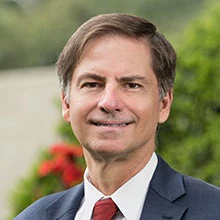 Indigenous woman in Colombia
Indigenous woman in Colombia
As we’ve seen for centuries, Indigenous Peoples of Latin America and the Caribbean are extremely resilient. Nevertheless, the inequality they face during normal times has aggravated the vulnerabilities now affecting them during the pandemic.
Their current situation is extremely fragile. They represent just 8 percent of the regional population yet account for 14 percent of the poor and 17 percent of the extremely poor. In other words, they disproportionately fill the ranks of the most vulnerable. This means less access to health services, fewer resources to purchase basic goods and increased exposure to infection.
The results of seven studies carried out by indigenous organizations and funded by the World Bank demonstrate that indigenous communities feel increasingly invisible. They believe they are not guaranteed minimal conditions of testing, treatment and rehabilitation; that the costs associated with Covid-19 treatment – usually in distant urban centers – are prohibitive for them; and that chronic problems such as malnutrition, respiratory diseases and diabetes put them at greater health risk. Part of the nearly USD 4 billion that the World Bank has allocated to mitigate the impact of the pandemic in the region is used to address these issues.
Covid-19 has also had a disastrous economic impact, which has exacerbated inequality and exclusion. Indigenous communities have seen their incomes decline due to reduced economic activity and they have suffered from the closure of local markets. Some basic foods and hygiene supplies, such as soap and bleach, are unavailable in their communities or are now much more expensive. Government aid does not always reach them, or requires beneficiaries to perform online procedures, have bank accounts or issue service invoices. These requirements do not take into account the economic and cultural reality of the communities.
In response to rising infection rates, many communities have opted to isolate themselves and prohibit visitors from entering. For example, in regions of the Amazon and Panama, the return or transit of migrant workers increased Covid-19 infections among the indigenous population. Alarming mortality rates are the result.
Those living in cities face a similar situation. They nearly always work in informal jobs and are isolated in poor neighborhoods. The lack of epidemiological data disaggregated by ethnic origin impedes grasping the true extent of the problem. It is necessary to shed light on these realities if we want to achieve increased inclusion and support development built on solid, equitable foundations.
The World Bank has assumed the challenge of collaborating on concrete efforts to promote the wellbeing of indigenous peoples of the region. That commitment is more relevant than ever today. The annual celebration of the International Day of the World’s Indigenous Peoples on August 9 is an opportunity to remember that commitment.
For example, in Panama, where Indigenous People account for more than 12 percent of the population, we have been implementing a USD 80 million project since 2018, which established a roundtable with 12 indigenous nations to promote development and close persistent exclusion gaps. Progress is also being made along these lines in Ecuador. We have implemented a community-led program for over 10 years in Paraguay to promote agriculture and sustainable development through training, resource management, community organization and improved access to markets.
Additionally, most of the World Bank’s projects in the region have social and environmental standards, which in 70 percent of cases activate specific measures to improve the living conditions of indigenous peoples. All of these projects consider health, education, safety, as well as health and transportation infrastructure, technological and financial inclusion, economic stimulus plans, cultural promotion and the strengthening of institutions and community organizations.
The World Bank also offers analytical and technical support in the region, which is key for contributing accurate assessments for political dialogue to enable the reordering of priorities and to focus efforts on the most vulnerable.
We can no longer tolerate the injustices of the past, one of which – perhaps the greatest – has been the historical exclusion of indigenous peoples. Rethinking the future of Latin America and the Caribbean means ending discrimination, supporting those who have been excluded and ensuring that the benefits of growth and public and private investment reach the most vulnerable sectors. The pandemic has underscored the urgency of advancing toward these objectives.


Join the Conversation